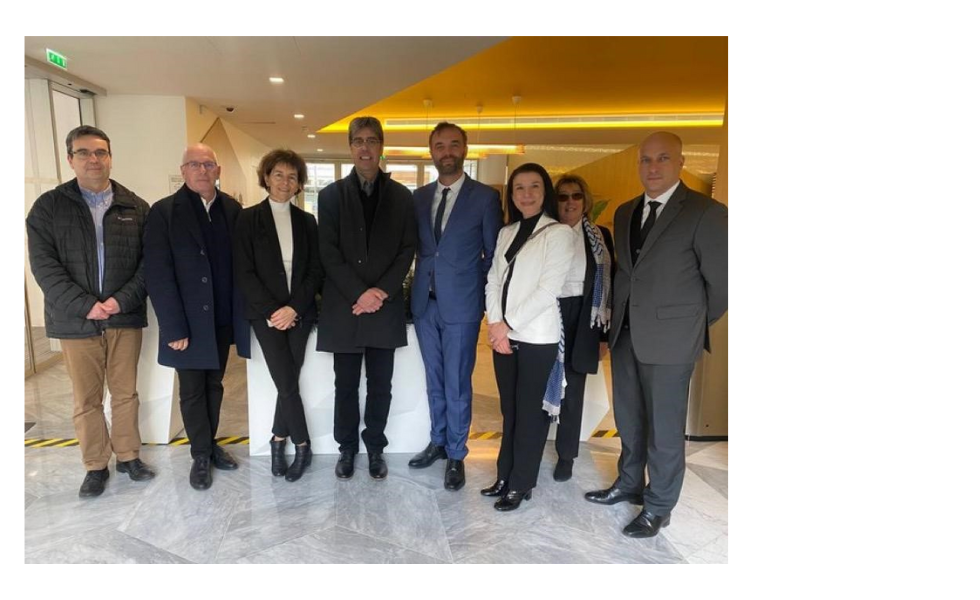As part of Plan France 2030, Montpellier has been chosen to host “Immun4Cure”, a University-Hospital Institute (IHU) dedicated to autoimmune diseases and innovative immunotherapies.

The delegation that went to Paris on Wednesday, February 1 to support the IHU project. Photo: DR.
Michaël Delafosse, Mayor of Montpellier, President of Montpellier Méditerranée Métropole, adds:
The “Immun4Cure” IHU will be located in the future Thomas Platter building specifically dedicated to biotherapy.“I am delighted that the French National Research Agency has chosen Montpellier to create a University Hospital Institute. The “Immun4cure” project is led by teams from Montpellier CHU, INSERM, and the University of Montpellier, under the leadership of Christian Jorgensen. This decision once again recognizes our region’s historical focus on medicine and research. It is also a concrete reflection of our determination to meet the major challenges of tomorrow with MedVallée Montpellier, a global excellence hub for Global Health, backed by strong support from the French government and the Occitanie Region via an ambitious policy in the field of biotherapy. With 5% to 8% of the world’s population currently affected by some type of autoimmune disease, the “Immun4Cure” IHU addresses a real public health challenge and will further strengthen an already high-performance and internationally recognized biotherapy ecosystem. This will help us to better understand the underlying mechanisms of these diseases and their diagnosis in order to improve care pathways and provide more targeted, innovative therapeutic strategies that will benefit patients. Montpellier will therefore contribute directly to France’s health sovereignty.”
This new facility, located in the heart of Montpellier’s CHU university hospital – the 6th largest in France – will provide the city with a unique research and innovation infrastructure, along with a cell therapy care center and a bio-production unit all at the same site.
A project at the very heart of MedVallée’s vision
MedVallée Montpellier is both an ambition and a strategy to build exposure for Montpellier as a hub for excellence in global health. “Feed, Protect, and Care” are the great challenges of tomorrow, also representing the motto of MedVallée, just like that of the Montpellier University of Excellence program.With MedVallée, the economic, academic, and research stakeholders working at the crossroads of our three excellence sectors – health, environment, and food – are united within a powerful and highly visible community.
Here is a summary of MedVallée’s seven major objectives, supported by the French State and the Occitanie Region:
- Unite players and create interdisciplinary synergy across health, food, and the environment.
- Stimulate economic development and jobs through innovation.
- Reinforce the territory’s attractiveness and international exposure.
- Attract and train talents: anticipate tomorrow’s professions.
- Build high-performance and virtuous infrastructure.
- Foster the use of digital technologies.
- Jointly create a metropolitan area that is exemplary in global health.
Additional information
Autoimmune diseases are chronic illnesses resulting from an inappropriate reaction of the body’s immune system, which ends up attacking the normal bodily components it is supposed to protect.
Examples include rheumatoid arthritis, lupus, scleroderma, and polymyositis. Though these diseases may seem very different from each other, they are all autoimmune diseases.
The vast majority of autoimmune diseases are caused by multiple factors. With a few exceptions, they are thought to be linked to a combination of genetic, endogenous, exogenous, and/or environmental components.


